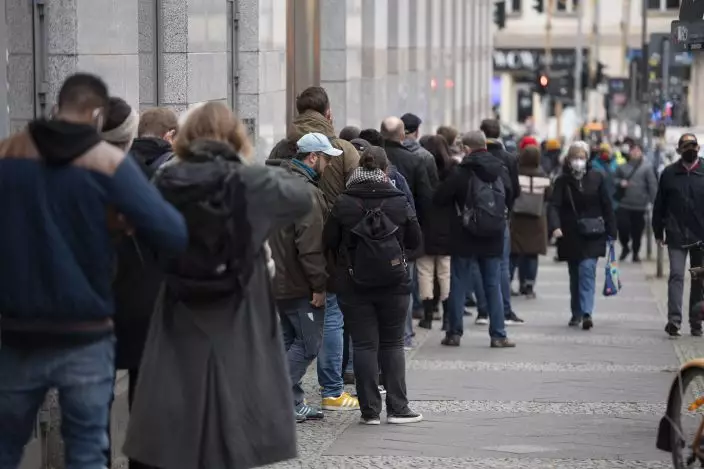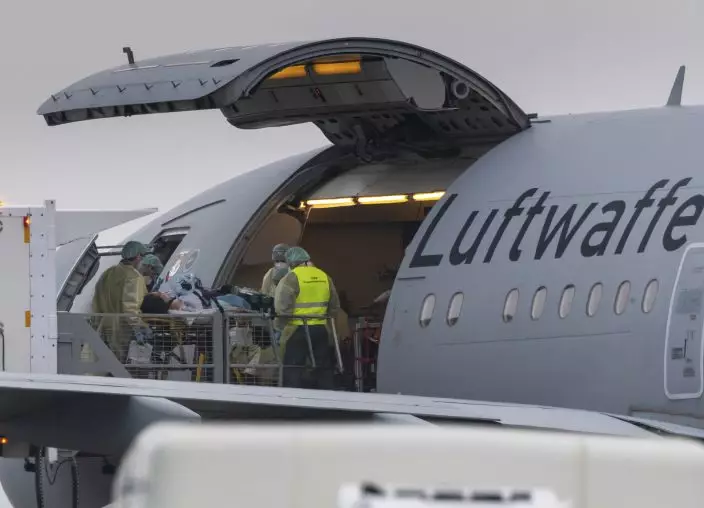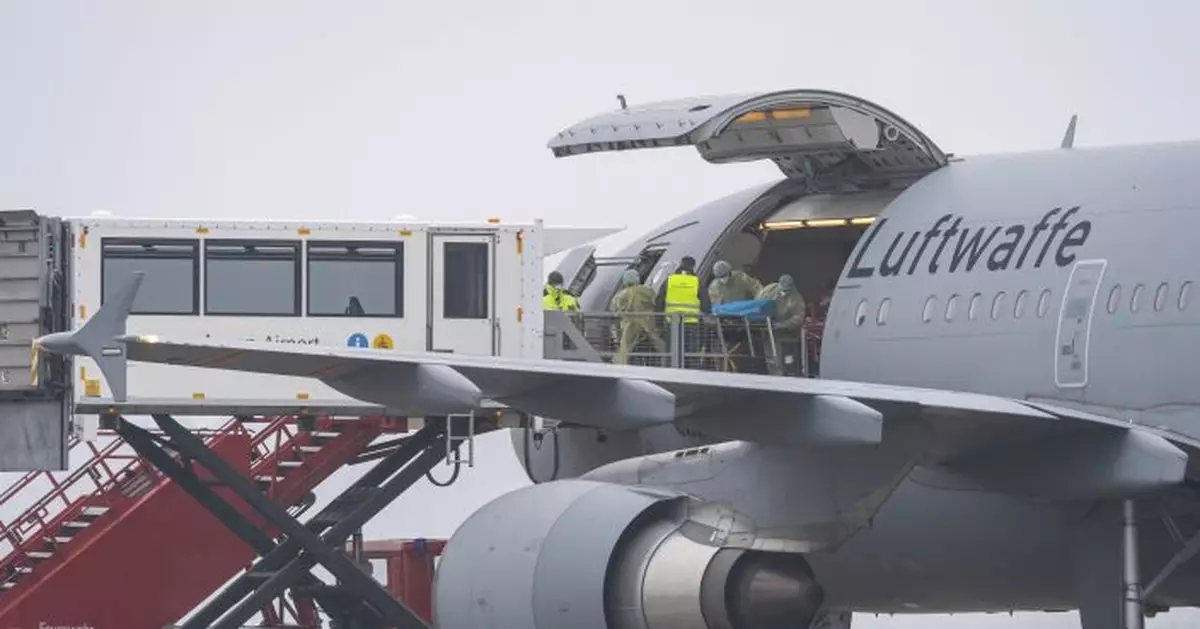Germany's health minister said Saturday he hopes that the sight of air force planes transferring patients across the country will act as a “wake-up call” to millions who are still holding out on getting vaccinated against COVID-19.
Health Minister Jens Spahn said there has been a welcome increase over the past week in the number of people getting their first shots, with 450,000 recorded. He put that down to pressure from Germany's worsening coronavirus situation and to increasing requirements to people to provide proof of vaccination or recent recovery to take part in many activities.
But it's still not enough and “this figure of nearly 12 million unvaccinated adults is still far, far too high,” Spahn said at an online town hall event. So far, 68.4% of the population of 83 million people is fully vaccinated, below the 75% minimum threshold eyed by the government. There are significant regional variations.

People stand in a queue outside a shopping center and wait to get vaccinated against the coronavirus and the COVID-19 disease in Berlin, Germany, Friday, Nov. 26, 2021. (Paul Zinkendpa via AP)
Hospitals in southern and eastern regions of Germany have warned they are running out of intensive care beds because of the large numbers of seriously ill COVID-19 patients. Germany is having to organize large-scale transfers of patients within the country for the first time since the outbreak began in early 2020, including with help from the military.
“This hopefully will give many people a wake-up call that vaccination is a pretty good thing,” Spahn said.
Germany has seen a relentless increase in coronavirus infections over recent weeks, with the infection rate hitting a new high every day. On Saturday, it stood at 444.3 new cases per 100,000 residents over the past seven days. Germany's known COVID-19 death toll climbed above 100,000 on Thursday.

A patient with the COVID-19 disease is load into a German air forces Luftwaffe aircraft at the airport in Memmingen, Germany, Friday, Nov. 26, 2021. The German air force Luftwaffe will begin assisting the transfer of intensive care patients from hospitals in Bavaria to northern German states. (Peter Kneffeldpa via AP)
A new government is expected to take over in early December, and the transition period has been blamed for paralyzing Germany’s response to the pandemic.
Follow AP’s coverage of the coronavirus pandemic at https://apnews.com/hub/coronavirus-pandemic

Acting German Health Minister Jens Spahn briefs the media on the current situation of the coronavirus pandemic in Berlin, Germany, Friday, Nov. 26, 2021. (Bernd von Jutrczenkadpa via AP)


